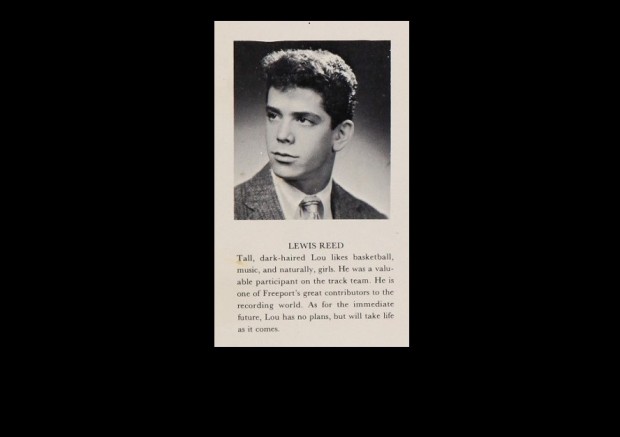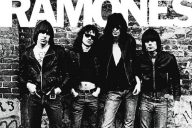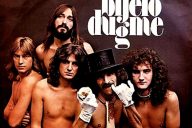The obituaries have been written and the tributes have poured in for Lou Reed following his death on October 27 at the age of 71.
One of the best was written by Byron Coley, one of the pioneering voices of rock criticism in the American underground and someone who, more than most, understands the huge influence Lou Reed, solo and with the Velvet Underground, had on shaping modern rock music. Here’s a snippet of Coley’s eulogy:
the easiest heroes are consistent
but the ones who really shape us
are random maniacs
whose work we stumble across
at times in our lives
we desperately need misdirection
“Random maniac” is a pretty spot on description of Lou Reed. He made a career out of confounding the expectations of fans and critics alike, often committing commercial hara-kiri in the process. Along with Bob Dylan and Neil Young, Reed has defined the role of the singer-songwriter auteur during the classic rock years. He created a deep and ongoing relationship with his fans and managed to both ingratiate and alienate critics, often at the same time.
Maybe because of the way the music industry was set up in the analog age, artists like Reed were given a longer leash to indulge in experiments that would have had record company executives ripping their hair out. Maybe artists like Kanye West and Radiohead are doing the same sort of thing these days.
Like Dylan going electric or Young making an electronic album, Reed threw more than his fair share of curveballs.
This capricious approach is what made Lou Reed so frustrating yet so compelling. It’s what kept him a relevant force in modern rock; an artist people would still listen to if only in the hope he would make one of his “return to form” albums (New York, Songs for Drella, Magic and Loss) rather than one of Lou’s wild trips into industrial feedback (Metal Machine Music), electronic rap (Mistrial) or an Edgar Allan Poe concept album (The Raven).
So here are five classic Lou Reed “random maniac” moments to enjoy alongside the high rotation repeats of “Walk on the Wild Side” and “Perfect Day”:
“Sister Ray” from White Light/White Heat (1968)
The follow-up to their famous/infamous debut album, White Light/White Heat was the band’s attempt at creating a sound that would better connect with a rock audience rather than the Manhattan art crowd which had been procured by their association with Andy Warhol.
The centre-piece was the 17-minute long “Sister Ray”, a Booker T & the MGs style rhythm track given an industrial-strength dose of guitar feedback that made it a formidable listen even for the most open-eared listeners.
“The Velvets had succeeded in pushing rock ‘n’ roll off the dial,” wrote Clinton Heylin in his book on American punk rock, From the Velvets to the Voidoids.
Metal Machine Music (1975)
American rock critic Lester Bangs described Reed’s blast of pure noise thus: “If you ever thought feedback was the best thing that ever happened to the guitar , well, Lou just got rid of the guitars.”
More pop-friendly fare like Transformer (1972) and Sally Can’t Dance (1974) was contrasted with this Godzilla-like effort in how to lose friends and alienate people. Reed himself was cagey about whether it was a serious stab at modern composition in the mode of Iannis Xenakis or Karlheinz Stockhausen or an attempt to piss-off his record company and fans of his more pop material.
Go on. See how long you can listen.
Live: Take No Prisoners (1978)
There’s a lot to love about this live album — great band, great songs, good performances and sound — but Reed’s stand-up material is what really shines through.
Reed turns into a rock ‘n’ roll Rodney Dangerfield on this album, dispensing almost as many heckler put-downs and one-liners as he does actual song lyrics. An example of the many zingers on here: “They’re sitting there by the fire — it’s an electric fire, you plug it in.”
Lou on politics: ” Are you political, Lou? Political about what? Give me an issue I’ll give you a tissue. Wipe my ass with it.”
There’s also his caustic takedown of rock critic Robert Christgau: “Critics! What does Robert Christgau do in bed? You know, is he a toefucker?”
And Patti Smith: “Fuck Radio Ethiopia [the title of Smith’s album]. I’m Radio Brooklyn. I ain’t no snob, man.”
Reed liked the album too: “And if I dropped dead tomorrow, this is the record I’d choose for posterity.”
“The Original Wrapper” from Mistrial (1986)
Lou Reed raps. No need to say more.
Lulu (w/Metallica) (2011)
Not content with receding gently into retirement by making backing music for instructional Tai Chi DVDs, Reed makes a loud, confrontational album with Metallica. Overwhelmingly canned by fans of both parties involved (it has a score of 1.9 for user reviews on Metacritic), critics gave the album mixed reviews.
According to Pitchfork: “Audacious to the extreme, but exhaustingly tedious as a result, its few interesting ideas are stretched out beyond the point of utility and pounded into submission…”
The album does, however, open with this:
“I would cut my legs and tits off,
when I think of Boris Karloff and Kinski,
in the dark of the moon.”
Time might yet prove Lulu to be a final Lou Reed classic.
















